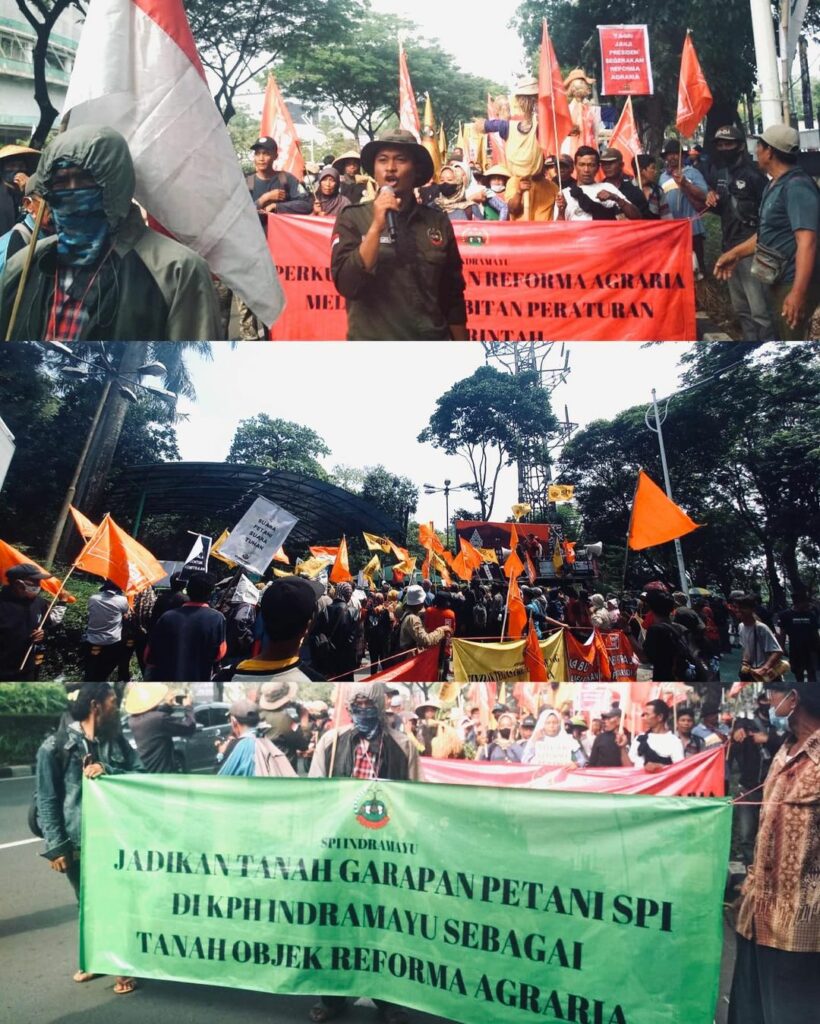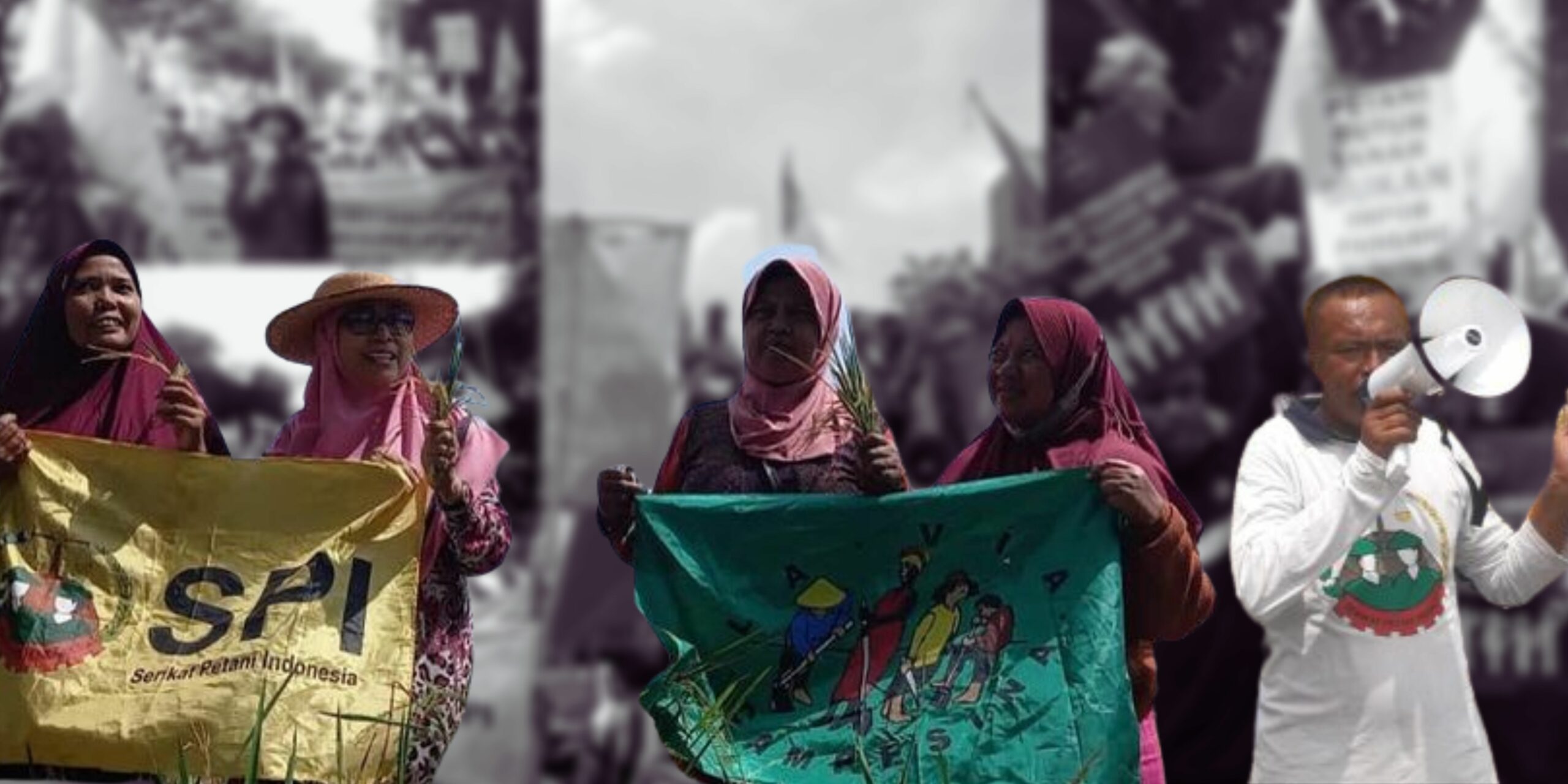Thousands of peasants, students and farm-workers joined Serikat Petani Indonesia’s (SPI) commemoration of the National Peasants’ Day on 24th September.
Henry Saragih, the SPI’s chairperson and a senior leader of La Via Campesina, emphasize that National Peasants’ Day is a moment to highlight the agrarian struggle in the country and its rich history. “We believe that overhauling the structure of land tenure and ownership, with redistribution through agrarian reform, is the way to realize prosperity and social justice for all Indonesians.”
According to statistics cited by the SPI, 68% of existing land resources are controlled by only 1% of the Indonesian population. To aggravate this, nearly 15 million people in rural areas and 12 million in urban areas live in extreme poverty.

This inequality has caused many agrarian conflicts that have not been resolved. In 2021 alone, SPI has recorded at least 104 instances of rural conflict. SPI alleges that the progress of land redistribution to peasant families is excruciatingly slow. According to SPI, the current national agrarian reform policy focuses only on certification and legalization, not efforts to overhaul land tenure inequality and resolve agricultural conflicts. The new and controversial Job Creation Law is also at odds with the spirit of the 1960 Basic Agrarian Law (UUPA) and true agrarian reform.
Several members of the peasant union also raised concerns about the protection and empowerment of farmers, the chaotic distribution of subsidized fertilizers, and the lack of fair remunerative prices for their produce.
The Union insisted that Indonesia’s long-term agricultural policy be based on the principle of food sovereignty. The government can make efforts to protect and fulfil the rights of farmers and people working in rural areas by harmonizing the UN Declaration on the Human Rights of Farmers and People Working in Rural Areas (UNDROP) in national agricultural policies.
“This is not a difficult thing, considering that the Indonesian government already has laws and regulations such as the Law on the Protection of Sustainable Food Land, the Food Law, and the Perlintan Law,” Henry added.
The Union also insisted that the government must cancel regulations/laws that do not favour farmers or criminalize their attempts to defend their territories.
For more information, click here.
This post is also available in Français.

